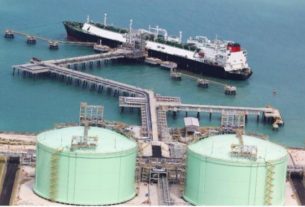THE Department of Highways yesterday revealed its new Bt2.1-trillion 20-year plan to develop the motorway network, expecting these investments to have a multiplier effect by more than two times worth Bt5.7 trillion for the economy.
“The plan is aimed at serving higher demand for travel and logistics transport, especially for tourist destinations and cross-border areas,” said Anon Luangboriboon, deputy director-general of the Highways Department.
At the third public hearing held by the Highways Department of the Transport Ministry in Bangkok yesterday, TLT Consultants Co, the project manager of a study, briefed some 200 representatives of the state and private sectors on the latest motorway-network planning.
The development plan for 2016-36 will cover 21 routes with a combined length of 6,612 kilometres. It will be in line with the country’s 11th National Economic and Social Development Plan (2012-16).
The Public Private Partnership (PPP) gross cost scheme will be used as the investment model – a model in which the state will bear the risks instead of private investors. Infrastructure funds will be a source of money apart from the fiscal budget, said Vasu Chaisuk, traffic and transport engineer of TEAM Consulting Engineering and Management Co.
“In 20 years so far, we have developed only 200km of motorways. By using the PPP scheme, we can develop 300km of motorways a year, compared with 20-30km a year currently using only the fiscal budget,” Vasu said.
As for engineering, he said the motorways would be designed in the context of Asean connectivity and compatibility with the planned railway network apart from easing traffic congestion and urbanisation like the existing plan established in 1997 with the target of expanding the motorway network to 4,000km.
Of the planned 21 routes, there will be three main components consisting of four routes in the Northeast, 15 in the Central, Western and Eastern regions, and three routes in the South.
Vasu said priority routes would be the outer ring roads of Bangkok and its vicinity, and a spine network to link Bangkok with Chiang Mai in the North, Nong Khai in the Northeast, and Chumphon in the South, totalling 3,100km, during the first phase in the first 10 years. The rest will be developed during the second phase in the next 10 years.
Among the 15 routes in the Central, Western and Eastern regions are: Bang Pa-in-Chiang Rai; Bang Pa-in-Nong Khai; Nakhon Pathom-Narathiwat; Bangkok-Ban Chang; Suphan Buri-Chai Nat; Laem Chabang-Nakhon Ratchasima; Bang Yai-Kanchanaburi; and Chon Buri-Nakhon Pathom.
Anon said construction on three projects – the 196km Bang Pa-in-Nakhon Ratchasima, the 96km Bang Yai-Kanchanaburi, and the 32km Pattaya-Map Ta Phut routes – could begin shortly after the Cabinet’s recent approval.
Total investments are expected to be Bt160.42 billion.”Construction will start next year and be completed in 2019,” Anon said.
As for the new motorway development plan, Kaiwut Simtarakaew, deputy managing director of TLT Consultants Co, said the company was scheduled to submit a final draft plan to the Highways Department for consideration in January ahead of seeking further approvals from the Transport Ministry and the Cabinet.
Source: http://www.nationmultimedia.com/business/Bt2-1-trillion-motorway-plans-likely-to-have-multi-30273590.html


